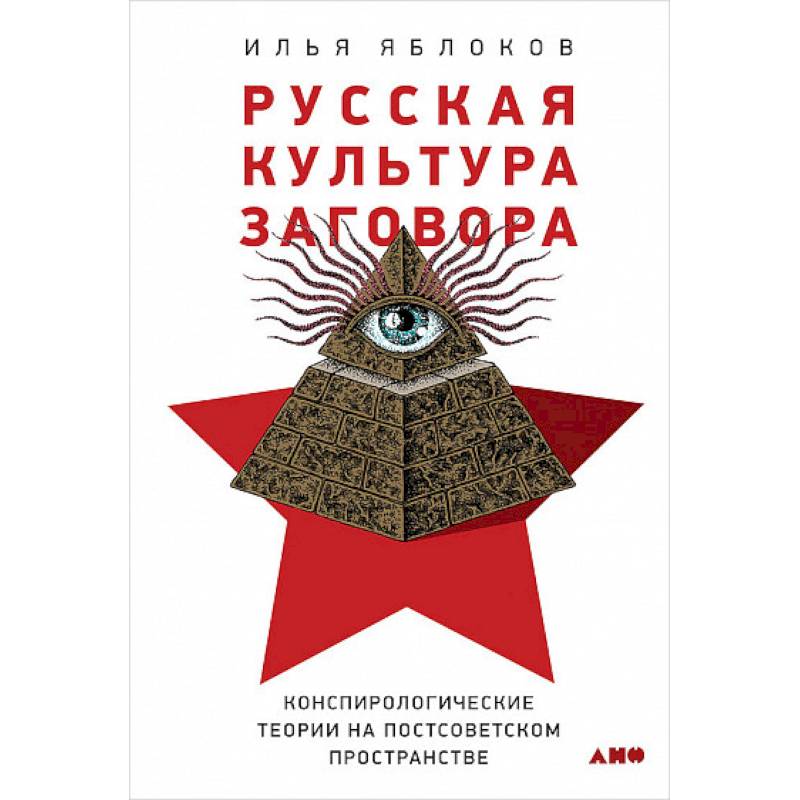Russian conspiracy culture. Conspirological theories in the post -Soviet space
Please sign in so that we can notify you about a reply
“Show everything that is hidden!”, “Truth somewhere nearby”, “If you are not paranoid, this does not mean that you are not watching you” ... How often do we hear these phrases that have become the slogans of our time? Book regiments are filled with publications about the enemies of Russia. Television programs talk about the intrigues of foreign special services: now the Chinese coronavirus is the invention of the Americans! And the Medusa publication, as some commentators believe in the Russian Facebook, works for the FSB!
Politics and oppositions equally believe that world policy is made by the hands of omnipotent clans of the Rothschilds and Rockefeller, or the Kremlin security forces, or the US State Department. And ordinary Russians are convinced that nothing happens just like that: someone’s order, someone"s black PR and certainly someone"s evil intent.
In his book, a historian, media expert and teacher of the University of Lids Ilya Yablokov shows that faith in a conspiracy theory is not necessarily a manifestation of paranoid consciousness. This is not only a natural reaction of a modern person to a complex world, a method by which an ordinary person who does not have any influence on the event takes place, comprehends the world. It is also a powerful political tool actively used by the elites of Russia for its own purposes and, as shown in the book, incredibly changed the appearance of the country in the post -Soviet period.
The theories of the conspiracy call into question the existing order of things in society and suggest (sometimes very specificly) to transform it into more fair, effective forms. In other words, conspiracy theories are a kind of “creative answer” to the challenges of time.
The perception of the collapse of the USSR as a national tragedy and the myth that the Soviet Union was deliberately destroyed by its political elites for the sake of profit or because of a conspiracy with a geopolitical enemy, all the post-Soviet years were a political instrument: first in the hands of the opposition, and then in the hands of the opposition The hands of the Kremlin. The events of August 1991 could become a unique symbol of the unification of the nation around the democratic achievements of the perestroika period. However, Yeltsin and his administration lost the war for symbols and meanings: August 1991 was forever suppressed from national memory, and in return national-patriotic forces did everything to delegitimize Yeltsin and turn their version of the end of the USSR into the mainstream.
For those who are interested in politics and modern culture
Politics and oppositions equally believe that world policy is made by the hands of omnipotent clans of the Rothschilds and Rockefeller, or the Kremlin security forces, or the US State Department. And ordinary Russians are convinced that nothing happens just like that: someone’s order, someone"s black PR and certainly someone"s evil intent.
In his book, a historian, media expert and teacher of the University of Lids Ilya Yablokov shows that faith in a conspiracy theory is not necessarily a manifestation of paranoid consciousness. This is not only a natural reaction of a modern person to a complex world, a method by which an ordinary person who does not have any influence on the event takes place, comprehends the world. It is also a powerful political tool actively used by the elites of Russia for its own purposes and, as shown in the book, incredibly changed the appearance of the country in the post -Soviet period.
The theories of the conspiracy call into question the existing order of things in society and suggest (sometimes very specificly) to transform it into more fair, effective forms. In other words, conspiracy theories are a kind of “creative answer” to the challenges of time.
The perception of the collapse of the USSR as a national tragedy and the myth that the Soviet Union was deliberately destroyed by its political elites for the sake of profit or because of a conspiracy with a geopolitical enemy, all the post-Soviet years were a political instrument: first in the hands of the opposition, and then in the hands of the opposition The hands of the Kremlin. The events of August 1991 could become a unique symbol of the unification of the nation around the democratic achievements of the perestroika period. However, Yeltsin and his administration lost the war for symbols and meanings: August 1991 was forever suppressed from national memory, and in return national-patriotic forces did everything to delegitimize Yeltsin and turn their version of the end of the USSR into the mainstream.
For those who are interested in politics and modern culture
Cover:
Cover:Hard
Category:
- Category:Politics & Social Science
- Category:Reference books
- Category:Social Science & Politics
Publication language:
Publication Language:Russian
Age restrictions:
Age restrictions:12+
ISBN:
ISBN:978-5-00139-177-7
No reviews found
